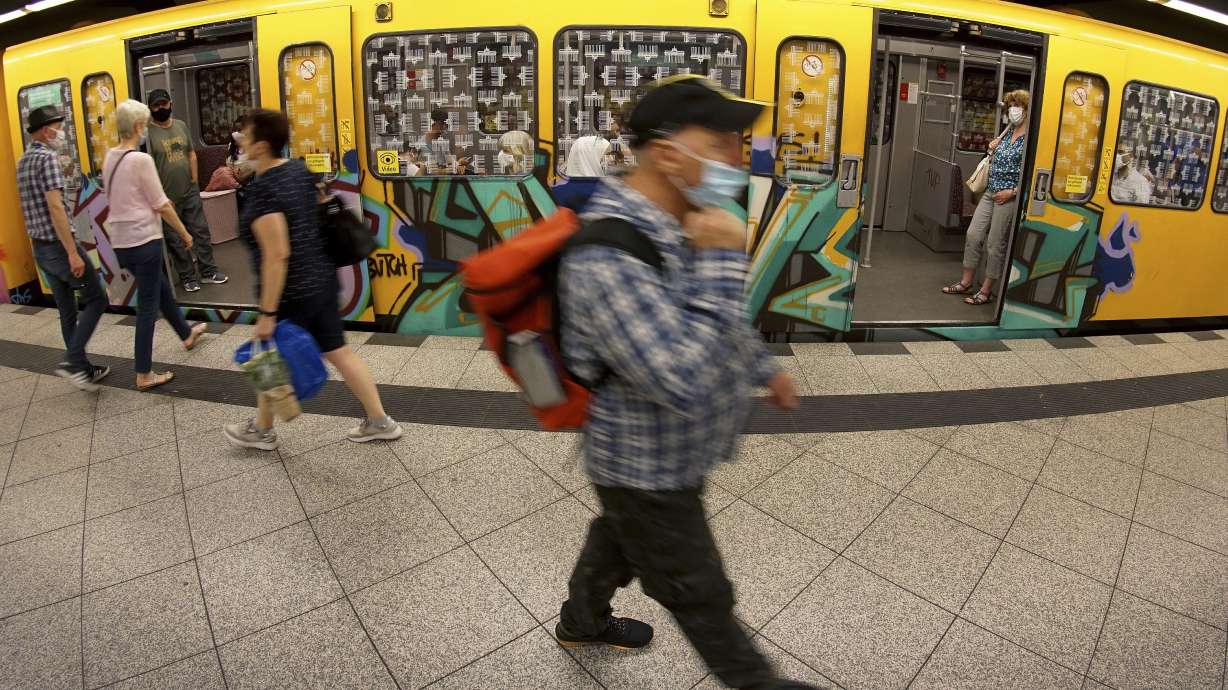Estimated read time: 2-3 minutes
This archived news story is available only for your personal, non-commercial use. Information in the story may be outdated or superseded by additional information. Reading or replaying the story in its archived form does not constitute a republication of the story.
BERLIN — Train and bus passengers in Germany will soon no longer be required to wear masks on long-distance trips as one of the country's last remaining COVID-19 restrictions comes to an end.
The federal mask mandate will be lifted Feb. 2, German health minister Karl Lauterbach announced in Berlin, saying, "the pandemic situation has stabilized," the Associated Press reported Friday.
The mandate had been set to end in April and had already been dropped for travel within some German states. Germany still requires masks in doctors' offices, and masks and negative tests are needed to enter hospitals and nursing homes, according to the Associated Press.
Other European countries also have halted similar public transportation requirements. In the United States, a federal judge struck down a nationwide mask mandate on public transportation in April 2022.
The German government has been under pressure to scrap the mask mandate since one of the country's leading virologists declared the pandemic over last month in comments to a local newspaper.
"We are experiencing the first endemic wave with SARS-COV 2 this winter; my assessment is that, with this, the pandemic is over, " Christian Drosten, a professor of virology at Berlin's Charite hospital, was quoted as saying, according to Associated Press.
Drosten also said his only reservation about his declaration would be a major new mutation of the COVID-19 virus, but added, "I don't expect that anymore at the moment either." It was just such a mutation, omicron, that sent cases soaring to record levels last winter.
Germany's decision to do away with mask mandates on public transportation comes amid new concerns about the spread of COVID-19 due to massive outbreak in China following the abrupt end of that country's strict "zero COVID" policies, as well as about a new subvariant.
The latest version of the omicron variant, known as XBB.1.5 or "Kraken," after a mythical sea monster, may be the most transmissible to date, but there's no indication it causes more severe illness.
Still, XBB.1.5 is driving a rise in cases in the United States and elsewhere, although China is dealing with different versions of the virus. The Centers for Disease Control and Prevention estimated Friday that XBB.1.5 now accounts for the majority of U.S. cases, about 43%.
This week, the World Health Organization said passengers on long-haul flights coming from places where COVID-19 is widespread should be urged to wear masks to protect against XBB.1.5. The European Union has made the same recommendation.










